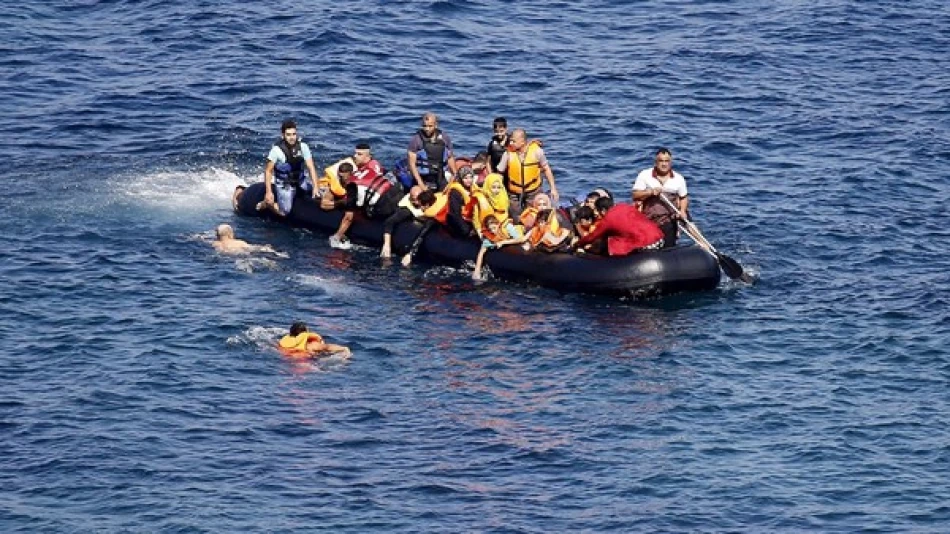
Tragic Maritime Rescue: Shipwreck Occurs During Migrant Assistance in the Aegean Sea
Frontex Vessel Sinks During Migrant Rescue Operation in Aegean Sea
A European Border Guard Agency (Frontex) vessel sank after hitting coral reefs near the Greek island of Lesbos during a migrant rescue operation amid severe weather conditions. While all six crew members were safely rescued, the incident highlights the dangerous conditions facing both migrants and rescue personnel in one of Europe's most treacherous migration corridors.
Rescue Operation Turns Perilous
The Portuguese-flagged vessel was participating in a search and rescue mission when it struck coral reefs near Lesbos during heavy winds, according to Greek Coast Guard officials. The crew, consisting of five Portuguese nationals and one Greek officer, were immediately rescued by other vessels in the area.
The rescue operation was triggered after 36 migrants who had reached the shores of Lesbos reported that other members of their group were missing at sea. Search efforts for the missing migrants continue, though challenging weather conditions are complicating operations.
Lesbos: A Critical Migration Flashpoint
The incident occurred in waters that have become synonymous with Europe's migration crisis. Lesbos, located just miles from the Turkish coast, has served as a primary entry point for migrants and refugees attempting to reach European shores since 2015. The island's proximity to Turkey makes it a frequent destination for overcrowded boats carrying asylum seekers from the Middle East, Africa, and Asia.
The Aegean Sea's unpredictable weather patterns and rocky coastlines have claimed thousands of lives over the past decade, making it one of the world's deadliest migration routes. Winter months typically see increased dangers due to rough seas and severe weather conditions.
Frontex Operations Under Scrutiny
Frontex, established in 2004 and significantly expanded in recent years, operates with a budget exceeding €750 million and maintains a growing fleet of vessels, aircraft, and personnel across EU borders. The agency has faced mounting criticism over its role in migration management, with human rights organizations questioning its practices and effectiveness.
This vessel loss represents a rare operational setback for the agency, which has invested heavily in maritime capabilities to monitor and respond to migration flows in the Mediterranean and Aegean seas. The incident may prompt questions about operational protocols and safety measures during rescue operations in adverse weather conditions.
Broader Implications for EU Migration Policy
The sinking occurs as European Union member states continue to grapple with migration policy reform and burden-sharing mechanisms. Greece, along with Italy and Spain, has repeatedly called for greater EU support in managing migration flows, arguing that frontline states bear disproportionate responsibility for rescue operations and asylum processing.
Recent data shows that while overall migration numbers have decreased from 2015-2016 peaks, the mortality rate among those attempting the crossing has increased, underscoring the persistent dangers faced by migrants choosing increasingly perilous routes to avoid detection.
The incident serves as a stark reminder that despite technological advances and increased funding for border security, the fundamental challenges of managing migration in dangerous maritime environments remain largely unresolved. As search operations continue for the missing migrants, the focus will likely return to long-standing debates about the balance between border security and humanitarian obligations in EU migration policy.
Most Viewed News

 Layla Al Mansoori
Layla Al Mansoori






